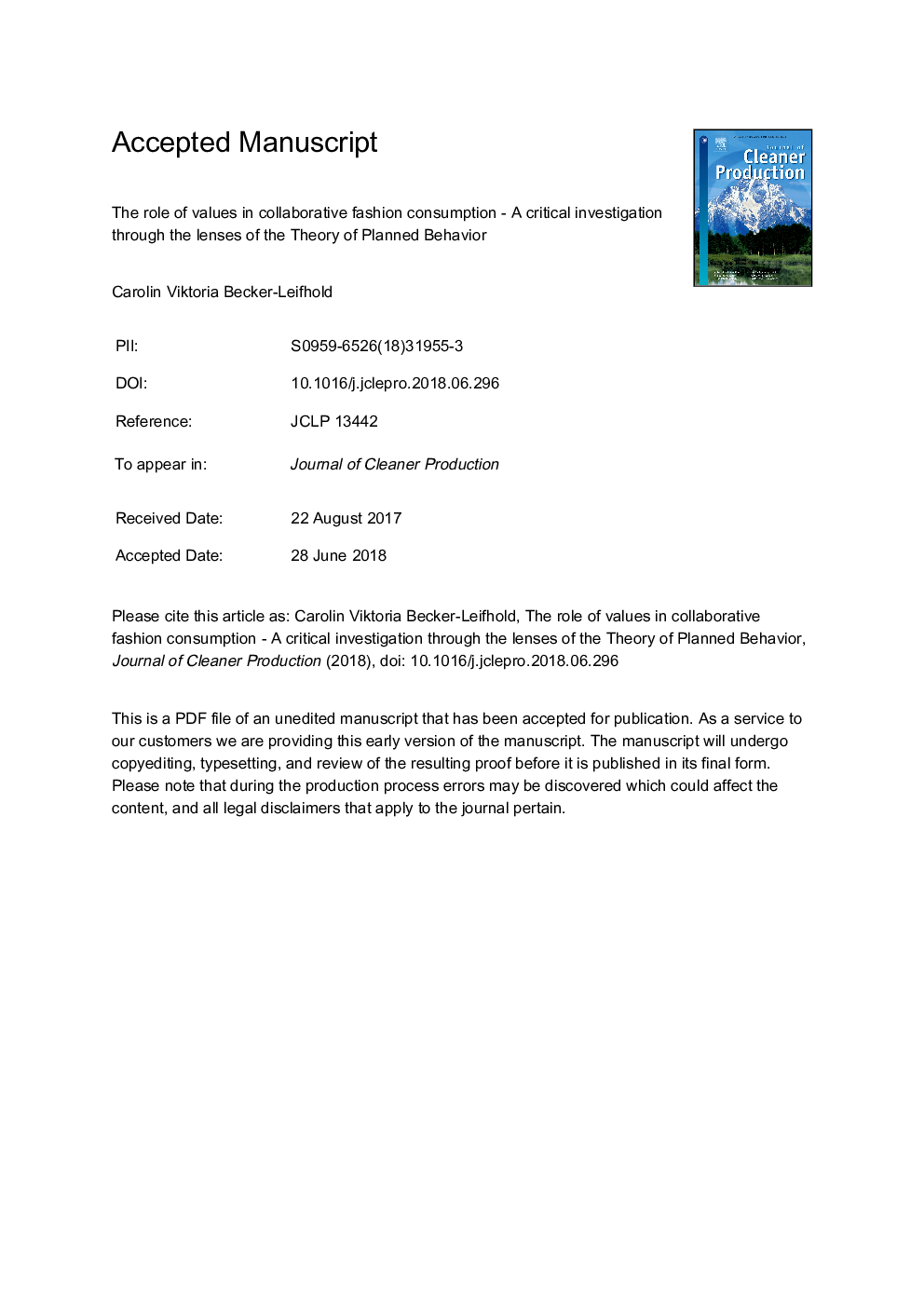| Article ID | Journal | Published Year | Pages | File Type |
|---|---|---|---|---|
| 8093299 | Journal of Cleaner Production | 2018 | 33 Pages |
Abstract
The clothing industry is one of the most polluting industries in the world. Initiators are not solely companies but also consumers who are responsible for the current state of the clothing industry. This has led to the need for innovative business models that are capable of satisfying consumer needs and reducing the environmental burden of the fashion industry at the same time. The emerging trend of collaborative consumption-for instance, renting instead of buying clothes-has led to one possible solution that product-service systems may provide to solve these issues. However, little is known about the core values that can lead to a consumer choosing or not choosing to practice collaborative consumption. Against this background, the purpose of this research is to provide empirical insights into how consumers' values and the theory of planned behavior constructs influence the intention to engage in alternative fashion consumption models. The study is based on the theory of planned behavior as well as the value-belief-norm theory using structural equation modeling based on an online questionnaire completed by 1009 respondents. The structural equation model developed explains the large amount of variance in consumers' intention to engage in collaborative fashion consumption.
Keywords
Related Topics
Physical Sciences and Engineering
Energy
Renewable Energy, Sustainability and the Environment
Authors
Carolin Viktoria Becker-Leifhold,
